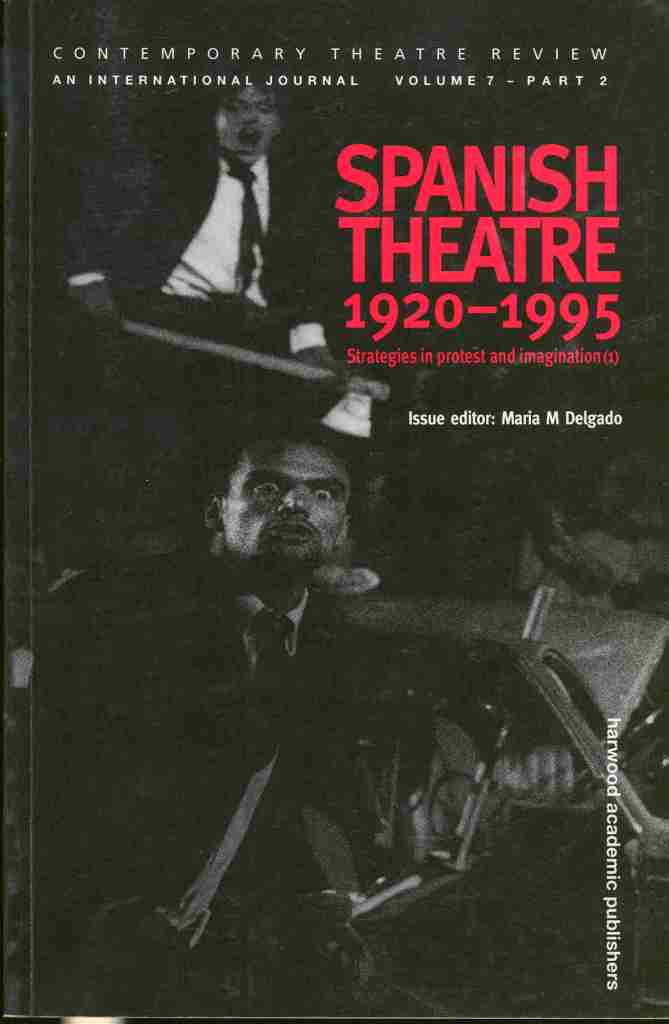The Spanish Stage in the Time of Avant-Garde.

This article offers a general overview of the new Spanish theatre during the twenties and thirties. The first section covers the trends in stage renovation promoted by Rivas Cherif, Valle-Inclán and García Lorca, among others, and reviews the main premieres, both in the professional and in the experimental and university fields. The second section attempts to synthesize the ideas derived from the texts of playwrights and critics which could form part of models, not applied in their time, attempting to show the parallels between these authors and avant-garde European theatre of the period.
“The impossible theatre. The spanish stage in the time of avant-garde” [Translated by Jill Pythian], Contemporary Theatre Review, vol. 7, part 2 (Spanish Theatre 1920-1995. Strategies in protest and imagination (1), edited by M. Delgado), Manchester, 1998, pp. 7-30. ISSN: 1048-6801 / ISBN: 90-5702-099-8.
«Right now, generally speaking, [Spanish theatre] is theatre for pigs, by gis. It’s theatre made by pigs, aimed at pigs’. That was García Lorca’s crushing response in 1933 when a journalist, after having interviewed him about La Barraca, wanted to know the poet’s opinion on contemporary professional theatre in Spain.[1] Lorca’s pronouncement is reminiscent of Artaud’s famous remark about writers, though in the Spaniard’s case the virulence and bitternes seem more justified. With similar scorn, Valle-Inclán had declared a few years previously that he had never written, nor would he ever write for Spanish actors, [2] and his theatrical creations were in fact kept much further away from the professional stages of Madrid than those of Lorca. […]
Download the complete text: The Impossible Theatre
Spanish version: El teatro imposible: La escena española en la época de vanguardias.